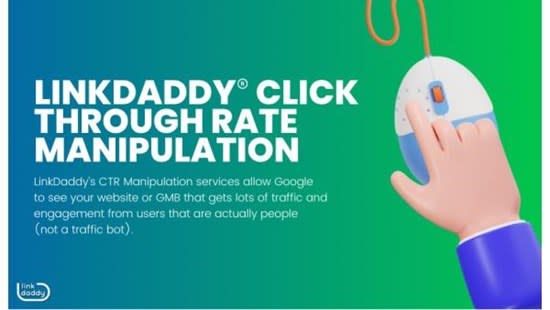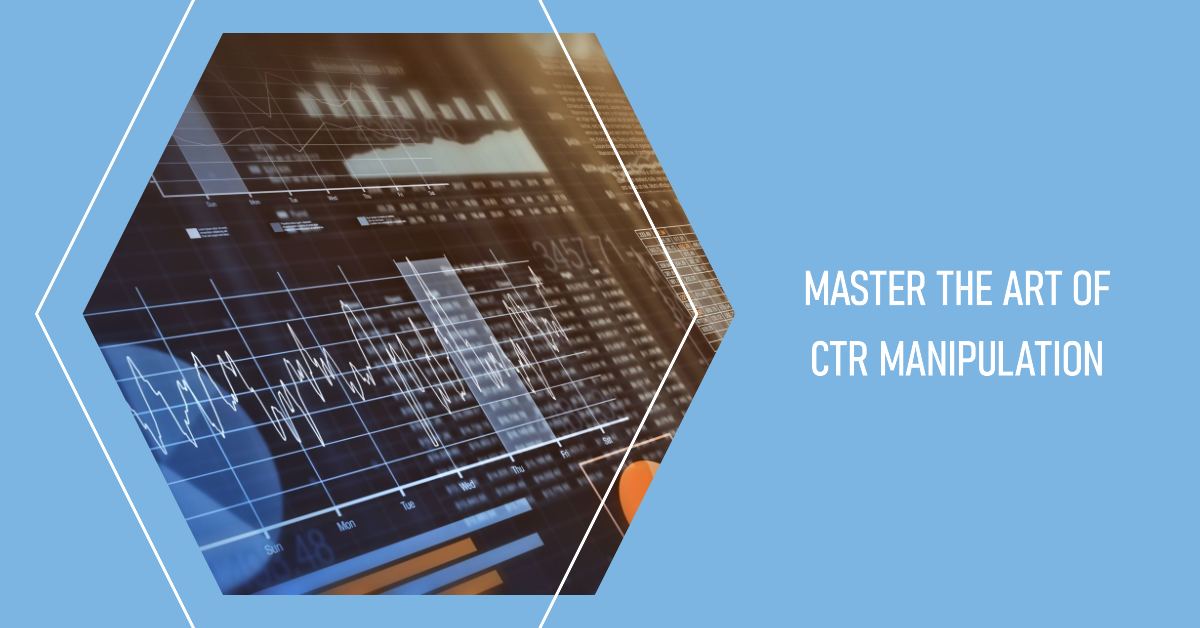Exploring the Connection In Between CTR Control Services and Individual Actions
In the world of electronic advertising and marketing, the impact of click-through price (CTR) control solutions on user actions continues to be a facility and fascinating subject. As on the internet systems increasingly count on CTR metrics to determine the success of content, products, and services, comprehending just how these controlled rates effect individual engagement and decision-making processes is vital. The interplay in between CTR control and user actions raises questions about authenticity, dependability, and the ethical implications of such techniques. By dissecting the detailed relationship in between CTR adjustment solutions and individual behavior, appealing understandings emerge that may improve our understanding of digital advertising and marketing approaches and their impacts on customers.
Effect of CTR Manipulation on Behavior
Evaluating the influence of Click-Through Price (CTR) control on user actions discloses critical understandings right into the dynamics of online involvement. CTR control involves unnaturally pumping up the variety of click a particular web link or promotion to deceive individuals and online search engine. This method can cause a distorted assumption of a web page's popularity or relevance, eventually influencing customer behavior.

In addition, CTR manipulation can skew the information utilized by formulas to individualize user experiences. This can lead to customers being offered material that does not line up with their preferences or rate of interests, ultimately resulting in a decrease in individual complete satisfaction and interaction. Understanding the impact of CTR manipulation on customer habits is necessary for keeping openness and rely on on the internet communications.
Customer Engagement With Manipulated CTR
Customer involvement with controlled CTR data usually leads to skewed perceptions of on-line material popularity and importance. When customers connect with content based upon synthetically filled with air Click-Through Fees (CTR), they might think that particular information, items, or services are more preferred or credible than they in fact are. This can cause customers choosing based upon deceptive data, leading to potentially unfavorable outcomes.
Involvement metrics like likes, shares, remarks, and time invested in a webpage are frequently influenced by CTR control. Users might be more likely to engage YOURURL.com with material that appears to have greater involvement rates, further bolstering the cycle of skewed assumptions. Therefore, content makers and advertisers might focus on producing material that generates high CTR as opposed to concentrating on creating really beneficial and relevant material.

Psychological Results of CTR Control

In addition, the mental results of CTR control can also show up in modified decision-making procedures. Individuals might be more likely to click content solely based upon its perceived appeal, as opposed to its real value or importance to their requirements. This behavioral change can lead to a superficial involvement with on the internet content, where customers may overlook top notch but less preferred offerings for those with unnaturally increased CTRs.
Fundamentally, the psychological implications of CTR adjustment highlight the significance of preserving openness and credibility in on the internet communications to promote real user involvement and trust.
Moral Considerations in CTR Control
CTR adjustment elevates problems concerning tricking customers, misshaping information analytics, and jeopardizing the integrity of on the internet material. By artificially blowing up see this website CTR, customers might be misinformed into clicking on web links or advertisements they would not have actually chosen or else, leading to a disingenuous online experience.
Another ethical facet to consider is the fairness of adjusting CTR to obtain an unjust advantage over competitors. Participating in such methods not just breaches principles of reasonable play but additionally weakens the count on that users position in online systems. It is important for businesses and electronic marketing experts to support moral standards in their techniques to guarantee transparency, reputation, and long-lasting sustainability in the on-line environment.
Effects for Digital Advertising
CTR adjustment can lead to skewed data analytics, misguiding marketing experts right into thinking that their projects are executing much better than they really are. When customers understand that CTRs have actually been adjusted, it can erode trust fund in the brand name, leading to long-lasting unfavorable consequences for consumer loyalty and brand reputation.
In addition, making use of CTR adjustment solutions can develop an unreasonable affordable landscape, where business that participate in such practices obtain a synthetic advantage over those that follow honest marketing standards. This can suppress advancement and creative thinking in electronic advertising, as success ends up being more concerning adjustment techniques than providing genuine worth to customers. Eventually, the implications of CTR adjustment for electronic advertising extend past temporary gains, impacting the overall sustainability and credibility of marketing initiatives in the electronic realm.
Verdict
Finally, the relationship between CTR manipulation services and customer actions is intricate and diverse. The impact of CTR manipulation on behavior, customer interaction with manipulated CTR, mental effects, honest factors to consider, and ramifications for electronic advertising and marketing all play a role fit this relationship. Comprehending these characteristics is essential for marketers and scientists alike in order to navigate the honest effects and make best use of the effectiveness of their digital advertising strategies.